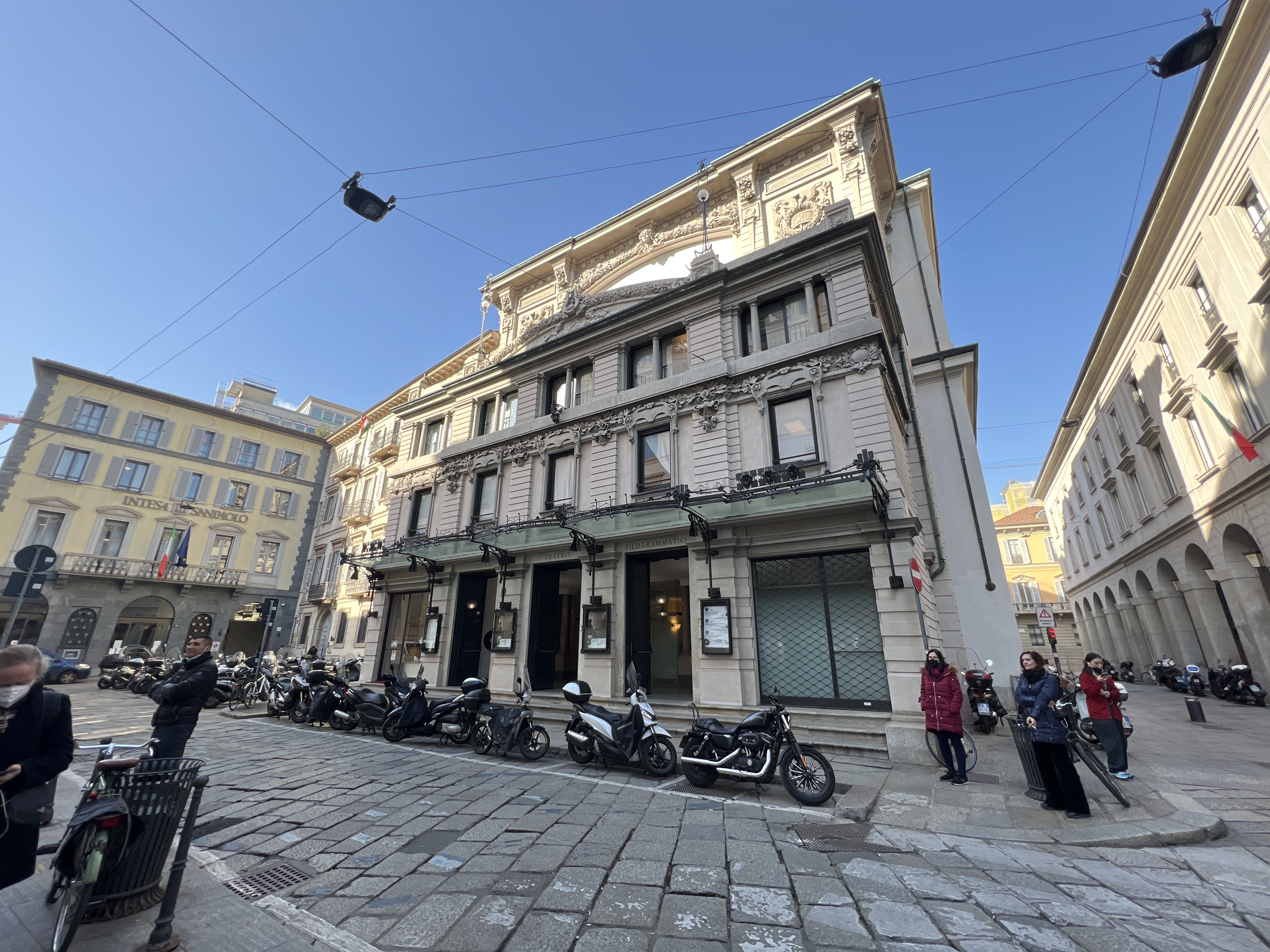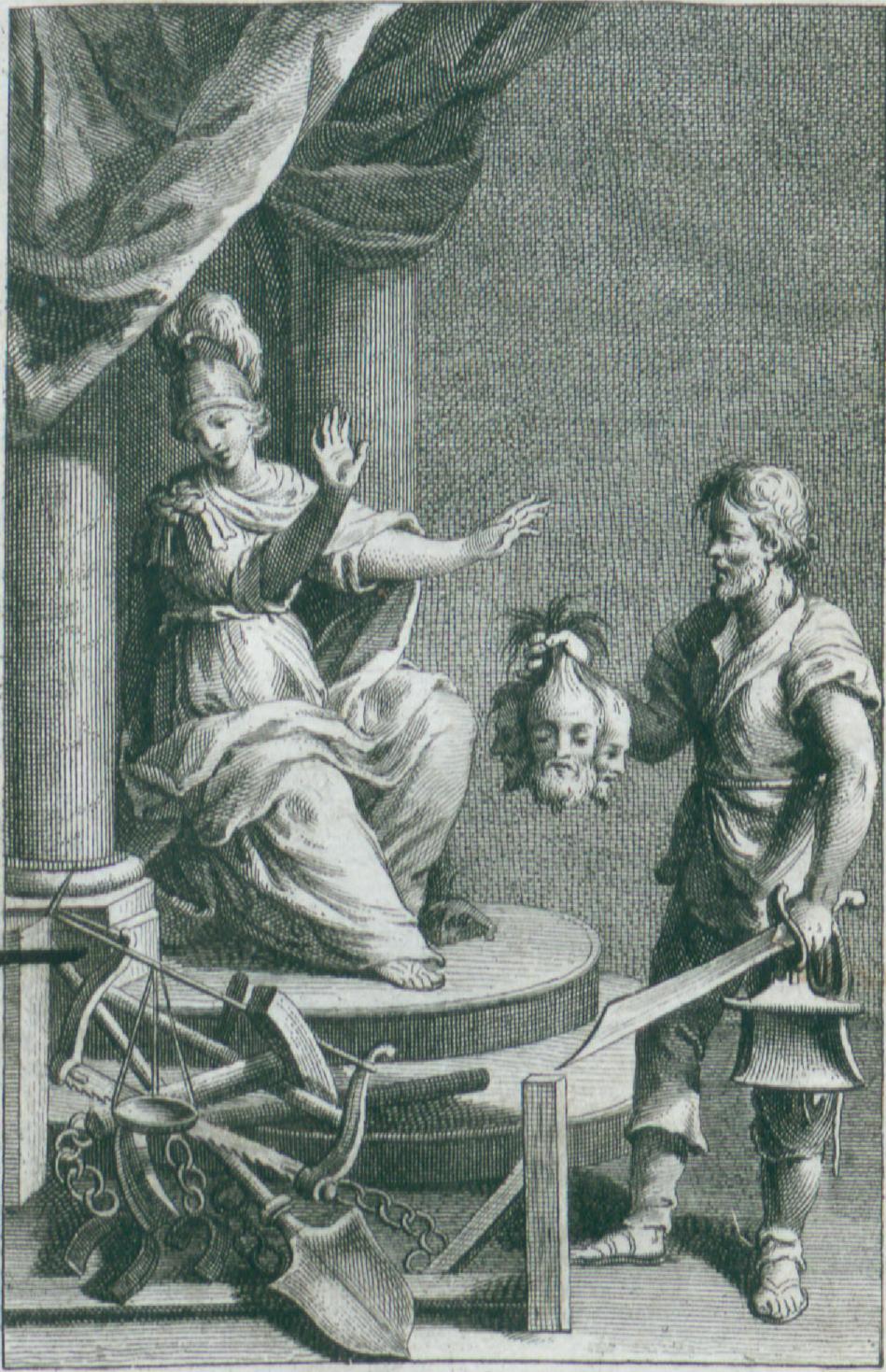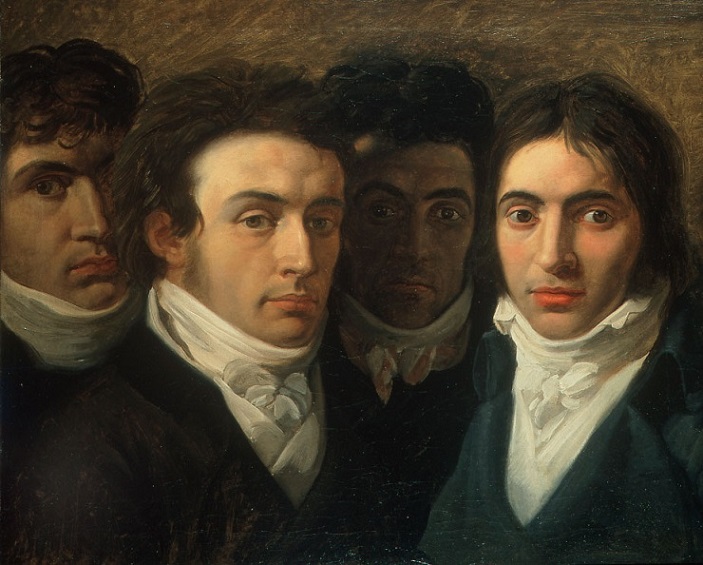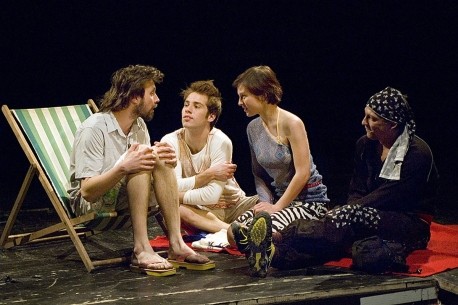|
Accademia Dei Filodrammatici
The Accademia dei Filodrammatici (literally "Academy of Drama Lovers"), is a drama school located in Milan, Italy and founded in 1796. It is the oldest theatre school in Italy. The theatre was designed by neoclassic architect Luigi Canonica, based on Giuseppe Piermarini’s drawings. The original structure was replaced in 1904 with an Art Nouveau building by architects Laveni and Avati. Of that structure, only the façade was preserved, with stucco and iron decorations and floral weaving, typical of the time. The interior was completely rebuilt by the architect Luigi Caccia Dominioni in the 1960s, due to its partial destruction during Second World War bombings. Tutors and staff members who worked at the school over the years include Vincenzo Monti, Carlo Porta, Ugo Foscolo, Cesare Beccaria, Giuseppe Giacosa and Giuseppe Verdi Giuseppe Fortunino Francesco Verdi ( ; ; 9 or 10 October 1813 – 27 January 1901) was an Italian composer best known for List of composition ... [...More Info...] [...Related Items...] OR: [Wikipedia] [Google] [Baidu] |
Ugo Foscolo
Ugo Foscolo (; 6 February 177810 September 1827), born Niccolò Foscolo, was an Italian writer, revolutionary and poet. He is especially remembered for his 1807 long poem ''Dei Sepolcri''. Early life Foscolo was born in Zakynthos in the Ionian Islands. His father Andrea Foscolo was an impoverished Venice, Venetian nobleman and doctor, and his mother Diamantina Spathis was Greeks, Greek. In 1788, upon the death of his father, who worked as a physician in Split, Croatia, Spalato (present-day Split, Croatia), the family moved to Venice, and Foscolo completed the studies he began at the Dalmatian grammar school at the University of Padua. Amongst his Paduan teachers was the Abbé Melchiore Cesarotti, whose version of ''Ossian'' was very popular in Italy, and who influenced Foscolo's literary tastes; he knew both Greek language, modern and Ancient Greek. His literary ambition revealed itself in the appearance in 1797 of his tragedy ''Tieste''—a production that enjoyed a certain ... [...More Info...] [...Related Items...] OR: [Wikipedia] [Google] [Baidu] |
Drama Schools In Italy
Drama is the specific mode of fiction represented in performance: a play, opera, mime, ballet, etc., performed in a theatre, or on radio or television.Elam (1980, 98). Considered as a genre of poetry in general, the dramatic mode has been contrasted with the epic and the lyrical modes ever since Aristotle's ''Poetics'' ()—the earliest work of dramatic theory. The term "drama" comes from a Greek word meaning "deed" or " act" (Classical Greek: , ''drâma''), which is derived from "I do" (Classical Greek: , ''dráō''). The two masks associated with drama represent the traditional generic division between comedy and tragedy. In English (as was the analogous case in many other European languages), the word ''play'' or ''game'' (translating the Anglo-Saxon ''pleġan'' or Latin ''ludus'') was the standard term for dramas until William Shakespeare's time—just as its creator was a ''play-maker'' rather than a ''dramatist'' and the building was a ''play-house'' rather than a ''th ... [...More Info...] [...Related Items...] OR: [Wikipedia] [Google] [Baidu] |
Educational Institutions Established In 1796
Education is the transmission of knowledge and skills and the development of character traits. Formal education occurs within a structured institutional framework, such as public schools, following a curriculum. Non-formal education also follows a structured approach but occurs outside the formal schooling system, while informal education involves unstructured learning through daily experiences. Formal and non-formal education are categorized into levels, including early childhood education, primary education, secondary education, and tertiary education. Other classifications focus on teaching methods, such as teacher-centered and student-centered education, and on subjects, such as science education, language education, and physical education. Additionally, the term "education" can denote the mental states and qualities of educated individuals and the academic field studying educational phenomena. The precise definition of education is disputed, and there are disagreements ... [...More Info...] [...Related Items...] OR: [Wikipedia] [Google] [Baidu] |
Education In Milan
Milan ( , , ; ) is a city in northern Italy, regional capital of Lombardy, the largest city in Italy by urban area and the List of cities in Italy, second-most-populous city proper in Italy after Rome. The city proper has a population of nearly 1.4 million, while its Metropolitan City of Milan, metropolitan city has 3.2 million residents. Within Europe, Milan is the fourth-most-populous List of urban areas in the European Union, urban area of the EU with 6.17 million inhabitants. According to national sources, the population within the wider Milan metropolitan area (also known as Greater Milan) is estimated between 7.5 million and 8.2 million, making it by far the List of metropolitan areas of Italy, largest metropolitan area in Italy and List of metropolitan areas in Europe, one of the largest in the EU.* * * * Milan is the economic capital of Italy, one of the economic capitals of Europe and a global centre for business, fashion and finance. Milan is reco ... [...More Info...] [...Related Items...] OR: [Wikipedia] [Google] [Baidu] |
Giuseppe Verdi
Giuseppe Fortunino Francesco Verdi ( ; ; 9 or 10 October 1813 – 27 January 1901) was an Italian composer best known for List of compositions by Giuseppe Verdi, his operas. He was born near Busseto, a small town in the province of Parma, to a family of moderate means, receiving a musical education with the help of a local patron, Antonio Barezzi. Verdi came to dominate the Italian opera scene after the era of Gioachino Rossini, Vincenzo Bellini, and Gaetano Donizetti, whose works significantly influenced him. In his early operas, Verdi demonstrated sympathy with the Risorgimento movement which sought the unification of Italy. He also served briefly as an elected politician. The chorus "Va, pensiero" from his early opera ''Nabucco'' (1842), and similar choruses in later operas, were much in the spirit of the unification movement, and the composer himself became esteemed as a representative of these ideals. An intensely private person, Verdi did not seek to ingratiate hims ... [...More Info...] [...Related Items...] OR: [Wikipedia] [Google] [Baidu] |
Giuseppe Giacosa
Giuseppe Giacosa (21 October, 1847 – 1 September, 1906) was an Italian poet, playwright and librettist. Regarded at the turn of the 20th century as one of Italy’s leading playwrights, Giacosa is remembered chiefly for his association with Puccini in double harness with the librettist Luigi Illica. Life Giuseppe Giacosa was born in Colleretto Parella, now Colleretto Giacosa, near Turin. The son of an attorney, he took a law degree from the University of Turin and practiced for a time in his father's office in Turin, but after his first theatrical successes he decided to devote the rest of his life to the stage. He gained initial fame for his play ''Una Partita a Scacchi'' ("A Game of Chess") in 1871. His main field was playwriting, which he accomplished with both insight and simplicity, using subjects set in Piedmont and themes addressing contemporary bourgeois values. In 1885 he was appointed professor of history and literature at the Academy of Fine Arts in Turin, but w ... [...More Info...] [...Related Items...] OR: [Wikipedia] [Google] [Baidu] |
Cesare Beccaria
Cesare Bonesana di Beccaria, Marquis of Gualdrasco and Villareggio (; 15 March 1738 – 28 November 1794) was an Italian criminologist, jurist, philosopher, economist, and politician who is widely considered one of the greatest thinkers of the Age of Enlightenment. He is well remembered for his treatise ''On Crimes and Punishments'' (1764), which condemned torture and the death penalty, and was a founding work in the field of penology and the classical school of criminology. Beccaria is considered the father of modern criminal law and the father of criminal justice. According to John Bessler, Beccaria's works had a profound influence on the Founding Fathers of the United States. Birth and education Beccaria was born in Milan on 15 March 1738 to the Marchese Gian Beccaria Bonesana, an aristocrat of moderate standing from the Austrian Habsburg Empire. Beccaria received his early education in the Jesuit college at Parma. Subsequently, he graduated in law from the University o ... [...More Info...] [...Related Items...] OR: [Wikipedia] [Google] [Baidu] |
Carlo Porta
Carlo Porta (15 June 17755 January 1821) was an Italian poet, the most famous writer in Milanese (the prestige dialect of the Lombard language). Biography Early life and education Carlo Porta was born in Milan to a well-to-do family. His father, Giuseppe, was a civil servant for the Habsburg administration. He studied in Monza until 1792 and then in the Seminary of Milan. In 1796, the Napoleonic Wars pushed Porta to find a job in Venice (where one of his brothers lived) and he remained there until 1799. For a brief interlude (1800–4) he was a comic actor at the Teatro Patriottico of Milan. From 1804 until his death, Porta worked as government employee. He was a leading member of Milanese intellectual circles. In 1816 he opened his own ''cameretta'', a gathering of Progressivism, progressive friends, including Alessandro Manzoni, Manzoni, Tommaso Grossi, Grossi, Giovanni Berchet, Berchet and other Romantics, who met once a week to discuss political and literary matters. It wa ... [...More Info...] [...Related Items...] OR: [Wikipedia] [Google] [Baidu] |
Drama School
A drama school, stage school, or theatre school is an undergraduate and/or graduate school or Academic department, department at a college or university, or a free-standing institution (such as the drama section at the Juilliard School) that specializes in the pre-professional training in drama and "theatre" arts, such as acting, Technical theatre, design and technical theatre, arts administration, and related subjects. If the drama school is part of a degree-granting institution, undergraduates typically take an associate degree, Bachelor of Arts, Bachelor of Fine Arts, or, occasionally, Bachelor of Science or Bachelor of Design. Graduate students may take a Master of Arts, Master of Acting, Master of Science, Master of Fine Arts, Doctor of Arts, Doctor of Fine Arts, or Doctor of Philosophy degree. Entry and application process Entry to drama school is usually through a competitive audition process. Some schools make this a two-stage process. Places on an acting course are l ... [...More Info...] [...Related Items...] OR: [Wikipedia] [Google] [Baidu] |
Vincenzo Monti
Vincenzo Monti (19 February 1754 – 13 October 1828) was an Italian poet, playwright, translator, and scholar, the greatest interpreter of Italian Neoclassicism in all of its various phases. His verse translation of the ''Iliad'' is considered one of the greatest of them all, with its iconic opening ("''Cantami, o Diva, del Pelide Achille l'ira funesta''", lib. I, verses 1–2) becoming an extremely recognizable phrase among Italians (for example, being the text shown when opening a font file in Microsoft Windows). Biography Monti was born in Alfonsine, Province of Ravenna, Emilia-Romagna the son of Fedele and Domenica Maria Mazzari, landowners. He was educated at the seminar in Faenza and at the University of Ferrara, where he studied medicine and jurisprudence. Monti derived from his classical education a taste for the elegance of Virgil and of the Arcadian poet Carlo Innocenzo Frugoni. In 1775 he was admitted to membership in the Academy of Arcadians, for which he took the ... [...More Info...] [...Related Items...] OR: [Wikipedia] [Google] [Baidu] |
Luigi Caccia Dominioni
Luigi Caccia Dominioni (7 December 1913 – 13 November 2016) was an Italian architect and furniture designer. Life Caccia Dominioni was born on 7 December 1913 in Milan, in Lombardy in northern Italy, to Ambrogio Caccia Dominioni, a lawyer, and Maria Paravicini; the family was a noble one, with origins in Novara, in Piemonte. Caccia Dominioni graduated from the Politecnico di Milano in 1936, and opened a studio with two fellow-students, Livio and Pier Giacomo Castiglioni. He was in the Italian army during the Second World War, but when the puppet Republic of Salò was established in 1943, he refused to recognise it and fled to Switzerland. After the war he returned to Milan and, with Corrado Corradi Dell'Acqua and Ignazio Gardella, started Azucena, a company which designed both furniture and furnishings such as door-handles and lamps. Work Caccia Dominioni designed many buildings in Milan, notably overseeing the internal restructuring of the Biblioteca and the Pina ... [...More Info...] [...Related Items...] OR: [Wikipedia] [Google] [Baidu] |








